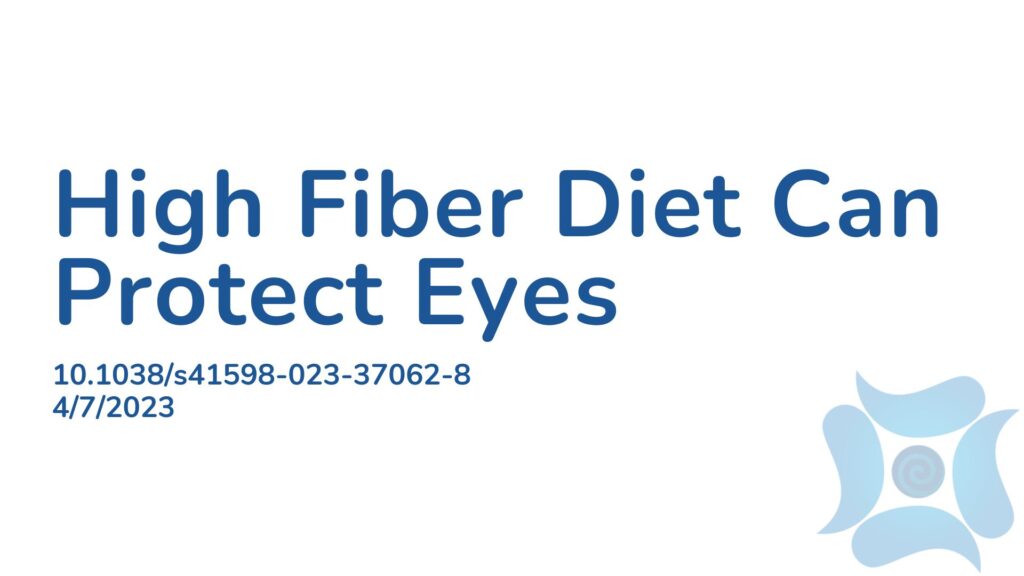Summary:
Non-infectious uveitis, which is inflammation to the iris that can drive problems with eyesight, is the most prevalent form of uveitis in developed countries and can be extremely threatening to eyesight. Recent preliminary studies have looked into the role of the microbiome and hypothesised that intestinal dysbiosis may contribute to the pathogenesis of this disease. This paper studied the impact of fermentable dietary fibers on autoimmune uveitis and how these fibers modified the microbiome to reduce inflammation and support immune mediators. The paper found that dietary fibers were able to modify the severity of uveitis. A diet high in pectin, which is found in the peel of fruits like apples, oranges and lemons was the most protective and effective at reducing disease severity. Pectin also helped to balance dysbiosis and restore the microbiome to optimal levels and ratios. In summary, the findings of this paper support the use of a high fiber dietary intervention as a strategy to support the symptoms and disease progression of non-infectious uveitis.
Abstract:
Therapeutic approaches for noninfectious uveitis have expanded greatly over the past 10 years, but are limited by potential side effects and limited efficacy. Thus, therapeutic approaches that include less toxic, potentially preventative strategies to manage noninfectious uveitis are essential areas of study. Diets rich in fermentable fiber are potentially preventative in various conditions such as metabolic syndrome and type 1 diabetes. We studied the effects of various fermentable dietary fibers in an inducible model of experimental autoimmune uveitis (EAU) and found that they differentially modulated uveitis severity. A high pectin diet was the most protective, reducing clinical disease severity through the induction of regulatory T lymphocytes and the suppression of Th1 and Th17 lymphocytes at peak ocular inflammation in either intestinal or extra-intestinal lymphoid tissues. The high pectin diet also promoted intestinal homeostasis as shown by changes in intestinal morphology and gene expression, as well as intestinal permeability. Pectin-induced modulation of intestinal bacteria appeared to be associated with protective changes in immunophenotype in the intestinal tract, and correlated with reduced uveitis severity. In summary, our current findings support the potential for dietary intervention as a strategy to mitigate noninfectious uveitis severity.
Article Publication Date: 4/7/2023
DOI: 10.1038/s41598-023-37062-8



